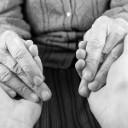-
Spouses of Cancer Patients Have Greater Risk of Psychiatric Disorders
Mental health support in the wake of a cancer diagnosis often doesn’t extend to spouses.
by Karon Warren
-
Living Beyond a Diagnosis
Judy Pearson was surprised by the demands of cancer survivorship. Here, she offers tips on how to look at life after cancer.
by Judy Pearson
-
Beating the Bully Inside
To gain control over fear of my breast cancer recurring, I called on lessons learned as a 5-year-old confronting the neighborhood bully.
by Joan Harris
-
Virtual Connection in a Time of Social Distance
Responding to the coronavirus, patient advocates and nonprofits expand existing outreach initiatives and launch new ones.
by Marci A. Landsmann
-
Treating Fear of Recurrence
Cognitive behavioral therapy may help cancer survivors cope with fear of recurrence, some studies say.
by Jon Kelvey
-
A Researcher Attends a Conference, This Time as a Patient Advocate
My most meaningful moments at my first cancer research conference came from embracing my experience as a patient—not as a researcher.
by Jamie Aten
-
Coping With Trauma
Nearly six years after being diagnosed with stage IV colon cancer, disaster psychologist Jamie Aten is still learning new ways of coping with the trauma stemming from his diagnosis and treatment.
by Jamie Aten
-
Lung Cancer and Stigma
Clinical health psychologist Jamie Ostroff discusses how feelings of blame surrounding a lung cancer diagnosis affect physical and mental health.
by Jen Tota McGivney
-
Caregivers Need Support Too
High-intensity cancer caregiving is associated with poor mental health, especially for caregivers who don't feel they're getting the support services they need.
by Jen Tota McGivney
-
Coping With Head and Neck Cancer
Patients with head and neck cancer often face physical, social and emotional issues that can add to existing mental health problems or give rise to new ones.
by Cheryl Platzman Weinstock
Cancer Talk
Physical Activity Linked to Lower Colon Cancer Recurrence
Participating in a structured exercise program after treatment was associated with a reduced risk of recurrence in people who had colon cancer.
by Sandra Gordon
Gaps in Survivorship Care Leave Unmet Needs After Cancer TreatmentA survey of head and neck cancer survivors reveals that many are not getting adequate survivorship care and may not even know it is available.
by Cameron Walker
Improving Communication for Deaf Cancer PatientsAfter a cancer diagnosis, people who are deaf or have hearing problems can struggle if accommodations don’t meet their communication needs.
by Eric Fitzsimmons
Is Immunotherapy Right for People Hospitalized With Advanced Cancer?Researchers find no evidence that immune checkpoint inhibitors benefit cancer patients getting inpatient care. They urge earlier consideration of palliative care.
by Kyle Bagenstose














